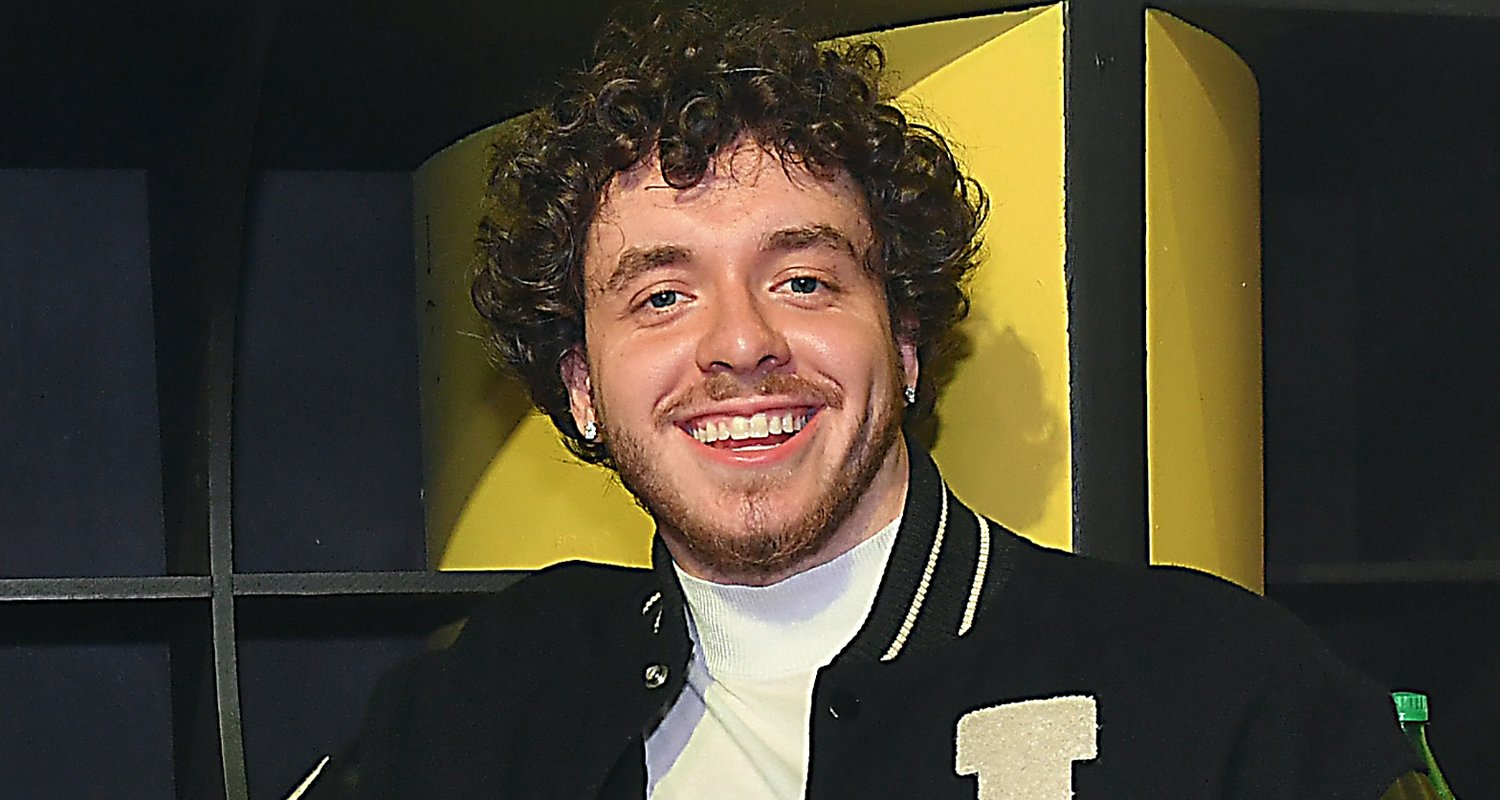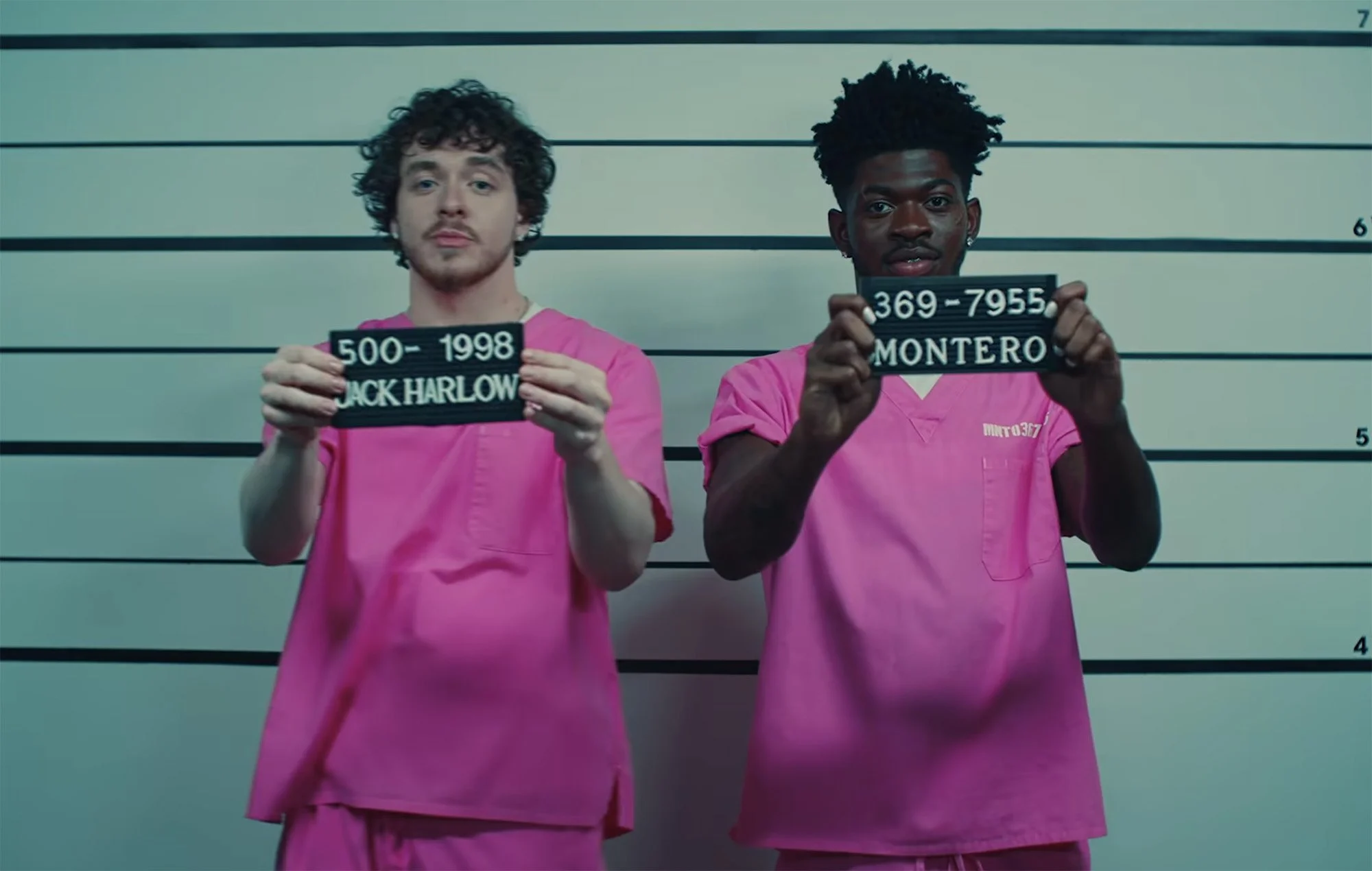Album Review: Jack Harlow, 'Come Home The Kids Miss You'
On "I Got A Shot," one of the tracks from the dreadfully uninteresting Come Home The Kids Miss You, Jack Harlow raps, "I made a livin' off these instrumentals." For his own sake, hopefully, this moment of irony was planned. The crisp production and immaculate beats on Jack's sophomore album are the only things that he will be able to make a living off of until the next album arrives. He certainly won't be reaping any benefits from his lackluster lyricism, droning flows, or stunted charisma.
At the back end of 2020, Jack Harlow released his debut studio album. The record was solid; Thats What They All Say laid the foundation for Jack to follow Drake's musical path and provided some keen insights into the city that made the "Whats Poppin" rapper. The pandemic shortchanged the success of the album's later singles, but thanks to the multi-platinum Grammy-nominated "Industry Baby" and rapturous mass adoration led by TikTok, Jack Harlow evolved into pop's latest heartthrob and one of rap's latest dilemmas. The journey from Jack's debut to Come Home The Kids Miss You is one of regression. Every element of Jack's latest album is annoyingly flat and unimpressive except for the gorgeous production. The mix on this album sounds expensive; every bass hit and every guitar strum reverberates throughout the track and envelops Jack's awful lyrics in a gilded casing. It truly is a shame that such meticulous engineering was wasted on an album that has nothing to say aside from confirming that Jack's charisma does not extend as far as he may think.
The most accessible entry point for Come Home The Kids Miss You is "First Class." The Fergie-sampling TikTok anthem entered the Billboard Hot 100 at #1, Jack's first solo song to reach the top spot. Even in the context of the album, "First Class" is obviously the Major Single™. In fact, Come Home The Kids Miss You feels like it was built around "First Class." The majority of the album sits in the laid-back flirtatious lane that inevitably becomes painfully monotonous. This is an album for and about women and Jack's love for them. Jack's debut covered similar themes, but Come Home The Kids Miss You is missing two major elements that made Jack's debut enjoyable. First, Thats What They All Say prioritized balance. For every lusty paean about a woman that caught Jack's eye, there was a song detailing advice from his mother or the expectations he places on himself as the face of his hometown. Come Home The Kids Miss You is overwhelmingly concerned with spitting game and whispering sweet nothings that lack any sense of cleverness or ambition. Furthermore, Jack is too aware of his new heartthrob status and it's annoyingly obvious. Jack's flirting used to be endearing and just short of clumsy. This time around, he's traded that for a sauntering swagger that doesn't suit him. "Nice dress but your birthday suit's a better outfit," he cornily raps on "I'd Do Anything To Make You Smile." Two years ago, that line would have been adorable because Jack embraced the cheesiness. At this point in time, however, Jack delivers lines like this in earnest, and it's uncomfortable to sit through.
"Talk Of The Town" opens the album with a haunting looped piano and the line, "a long way from Bardstown, I'm on the charts now." The very first line of Come Home The Kids Miss You makes clear that Jack is chiefly concerned with maintaining and extending his time at pop music's zenith. If he thinks that any of these songs outside of "First Class" are going to help him on this mission, he may be playing a fool's game. The songs on this album are remarkably vapid; Jack rarely has anything of substance to say, and when he does, it's often alongside a veteran rapper who unintentionally makes him sound like a high schooler at their school's talent show assembly. "Talk of The Town" samples Destiny's Child and Wyclef Jean's "No, No, No (Part 2)," a choice that drips with irony after Jack's recent controversy around his failure to recognize the fact that Brandy and Ray J are siblings. On a later track titled "Lil Secret," one of the better moments on the album, Jack samples Tweet's "My Place." As a white man working in a Black genre, the absolute least Jack could do is have some knowledge of the movers and shakers of Black music — especially if he's going to sample R&B giants as he has on this album. This lack of connection to and care for the culture permeates throughout Come Home The Kids Miss You. As tight as the album's production is, the whole affair never quite locks in because Jack feels disconnected from the beats that he's rapping on. Everything is too formulaic, which is amusing because the formula in question barely works.
Come Home The Kids You features some heavyweights as guest artists. Pharrell, Justin Timberlake, Drake, Lil Wayne, and Snoop Dogg all make appearances on the record. In each instance, Jack is swallowed up by his co-star. In all honesty, he never stood a fair chance. "Movie Star," which features Pharrell on singing, rapping, and production duties, is only memorable because of the musical whiplash its sequencing provides. The electro-trap influences of the song make for a shocking follow-up to the jazzy second half of "Side Piece." Lil Wayne's guest spot on "Poison" is a standout moment that highlights just how naturally this rap thing is for Dwayne Carter. A phoned-in Wayne verse washing an artist on their own album is certainly a sight to see. Justin Timberlake provides a sequel to the white boy link-up that was the Adam Levine-assisted "Same Guy" on Jack's debut. "Parent Trap" isn't a bad song by any means, but both Timberlake and Harlow have such sauceless deliveries that the song starts to drag immediately. In fact, by the time we hit "First Class" (track 5), Come Home The Kids Miss You finds itself stuck in a rut that it never gets out of.
Then, of course, there's the perfectly adequate "Churchill Downs," the inevitable union of Jack Harlow and Drake. From the R&B crooning of "Luv Is Dro" to the introspective qualities of "Baxter Avenue," Thats What They All Say found Jack wearing his Drake influences on his sleeve. The music machine has been priming Jack as the next Drake for a while now. Jack's singing on records ("Poison"), flexing his pop appeal ("First Class," "Industry Baby"), catering to his large female fanbase, delivering moody and reflective no-hook stream-of-consciousness raps ("State Fair"), and playing up his attractiveness as much as possible. On "Churchill Downs," Drake effortlessly outshines Jack. Not that it was particularly difficult to do when Jack is delivering garbage like "At the shows I'm 'bout to start handin' out programs / 'Cause y'all need to get with the program / I'm a grown-ass man, call me pops / Fuck around and take your phone ass man." More importantly, however, at the end of his verse, Drake raps, "And shorty like, 'You know that boy Jack is goin' places' / I know." After sonning Jack with his verse, Drake's "I know" feels like an acknowledgment that Jack will carry on his musical legacy in some capacity, but not in any way that will remotely compare to the impact that Drake has had on the industry. The tension held in those two words is infinitely more intriguing than pretty much anything else happening on Come Home The Kids Miss You, especially the asinine "Dua Lipa."
Come Home The Kids Miss You is one of the worst releases of the year, but that won't hinder its commercial prospects. The album is a major disappointment because, just two years ago, Jack proved that he was capable of much more interesting and dynamic music. If we're going to be subjected to a white rapper thriving, the music should at least be more than barely passable.
Key Tracks: "Side Piece" | "Churchill Downs" | "State Fair" | "Poison"
Score: 47





Jung Kook follows up “Seven” with a sexy new Jack Harlow collab.